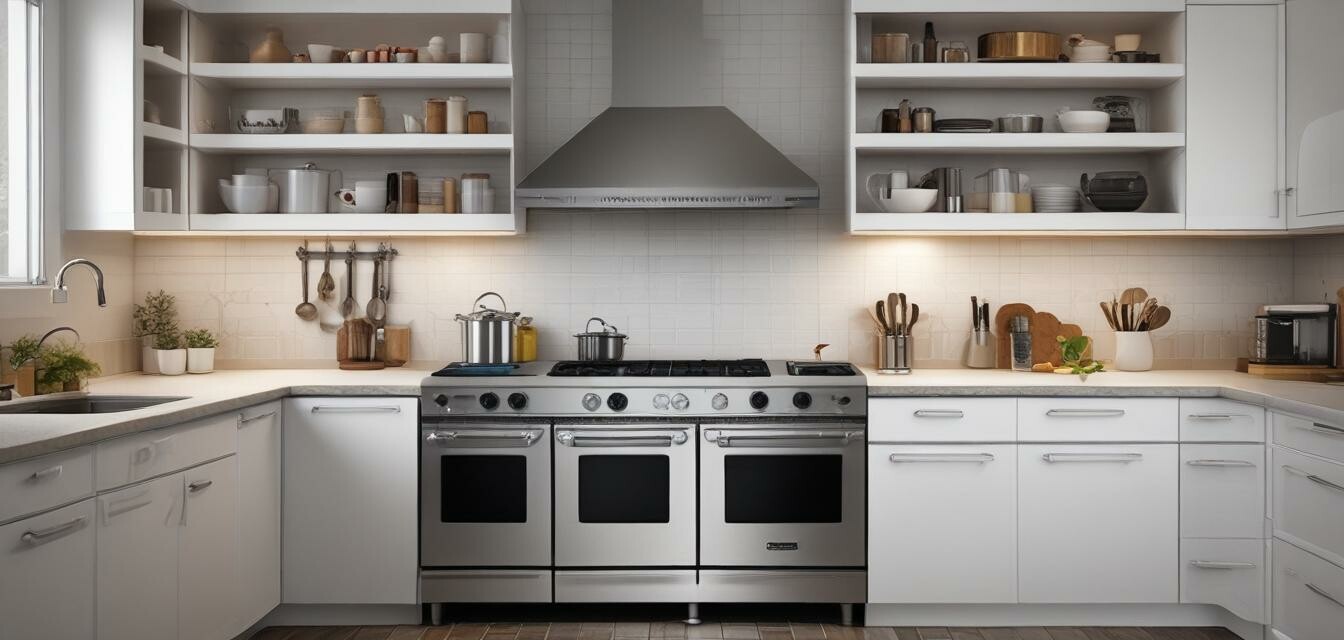
Tips for energy efficient home cooking
Key Takeaways
- Utilize appliances like microwaves and dishwashers for energy savings.
- Preheat ovens only when necessary and use the right size for your meal.
- Practice regular maintenance on appliances to ensure optimal performance.
- Consider cooking in bulk to reduce energy usage over time.
- Adopt smart cooking methods with conscious choices of utensils and settings.
Cooking at home can not only be enjoyable but can also contribute significantly to energy savings, especially with the right tips and techniques. By utilizing kitchen appliances efficiently, you can minimize energy consumption and reduce your utility bills. This article explores helpful tips for using kitchen appliances in an energy-efficient manner, featuring best practices for ovens, microwaves, and dishwashers that save energy.
Understanding energy-efficient cooking practices
With the rising costs of energy, understanding how to reduce consumption while cooking has never been more essential. Here are some valuable practices that can help you cook smarter:
Using your oven efficiently
- Preheat only when necessary: Many recipes require preheating; however, if you're cooking dishes like casseroles or stews, you can skip this step to save energy.
- Choose the right size oven: If you are cooking only a small dish, consider using a toaster oven rather than a full-sized oven.
- Keep the oven door closed: Opening the oven door releases heat, resulting in longer cooking times. Use the oven light to check on your meal.
- Use glass or ceramic dishes: They heat more efficiently and allow you to reduce cooking time.
Microwave cooking tips
Microwaves can be a fantastic alternative to traditional ovens, offering a faster and often more energy-efficient way to cook.
- Cover dishes: Using a lid or microwave-safe cover traps heat and helps food cook faster.
- Cook with glass containers: They enable more efficient heat transfer, reducing cooking times.
- Defrosting: Always use the defrost setting rather than leaving food out, which can prevent energy wastage.
- Batch cooking: Prepare several meals at once to save power by cooking in larger quantities.
Washing with energy-efficient dishwashers
Dishwashers can save more energy and water than washing by hand when used properly. Here’s how:
- Only run full loads: Wait until your dishwasher is full before running it to maximize water and energy usage.
- Use eco mode: Most modern dishwashers have an eco-friendly cycle that uses less energy and water.
- Skip pre-rinsing: Modern dishwashers are designed to handle dirty plates without rinsing them first. This saves both water and energy.
- Regular maintenance: Clean filters and check for blockages regularly to ensure it's running at peak efficiency.
Table of energy-efficient kitchen practices
| Appliance | Tip | Benefits |
|---|---|---|
| Oven | Preheat only when necessary | Saves energy, reduces cooking time |
| Microwave | Cover dishes while microwaving | Traps heat, cooks food faster |
| Dishwasher | Run only full loads | Maximizes water and energy usage |
Key considerations for energy-efficient cooking
Beyond using appliances wisely, there are several other aspects to consider in your kitchen for energy conservation:
Use energy-efficient utensils and cookware
- Opt for heavy-bottom cookware: They distribute heat evenly, cooking food faster.
- Use lids on pots and pans: This reduces cooking time and energy consumption.
- Keep utensils and appliances clean: Regular maintenance helps improve performance and reduces energy use.
Smart cooking habits
- Cook in bulk: Prepare extra portions and store for later use to save energy in future cooking sessions.
- Plan meals ahead: Having a meal plan reduces the need for last-minute cooking that can lead to wasted energy.
- Use residual heat: Turn off the stove or oven before your food is fully cooked to use the heat already generated.
Tips for beginners
If you're new to using energy-efficient practices in cooking, here are some simple tips to get started:
- Start by assessing your current cooking methods.
- Choose one or two new practices to implement each week.
- Track your energy usage to see the impact of your changes.
- Educate others in your household about the benefits of energy efficiency.
Conclusion
Energy-efficient home cooking is not only about saving money but also about being mindful of our planet. By incorporating these tips and practices into your daily routine, you can optimize your kitchen’s energy consumption while enjoying delicious meals. Remember to stay adaptable and make use of technology and methods that enhance efficiency in your cooking. For further insights, check out our buying guides and explore more on how to make your home energy efficient.